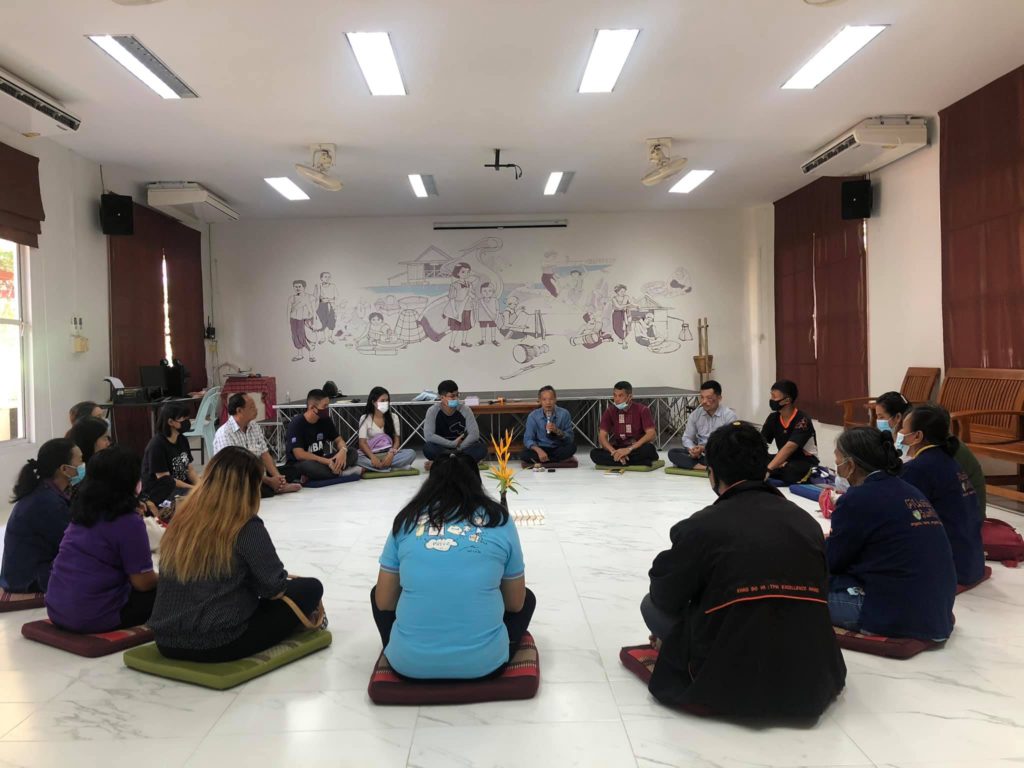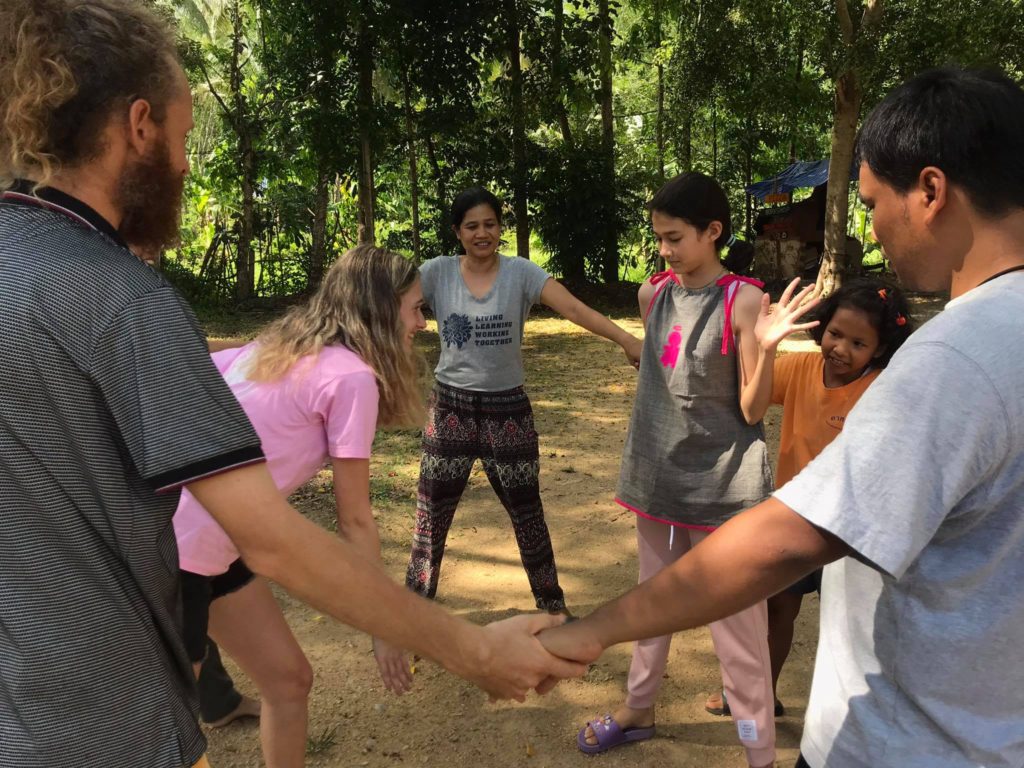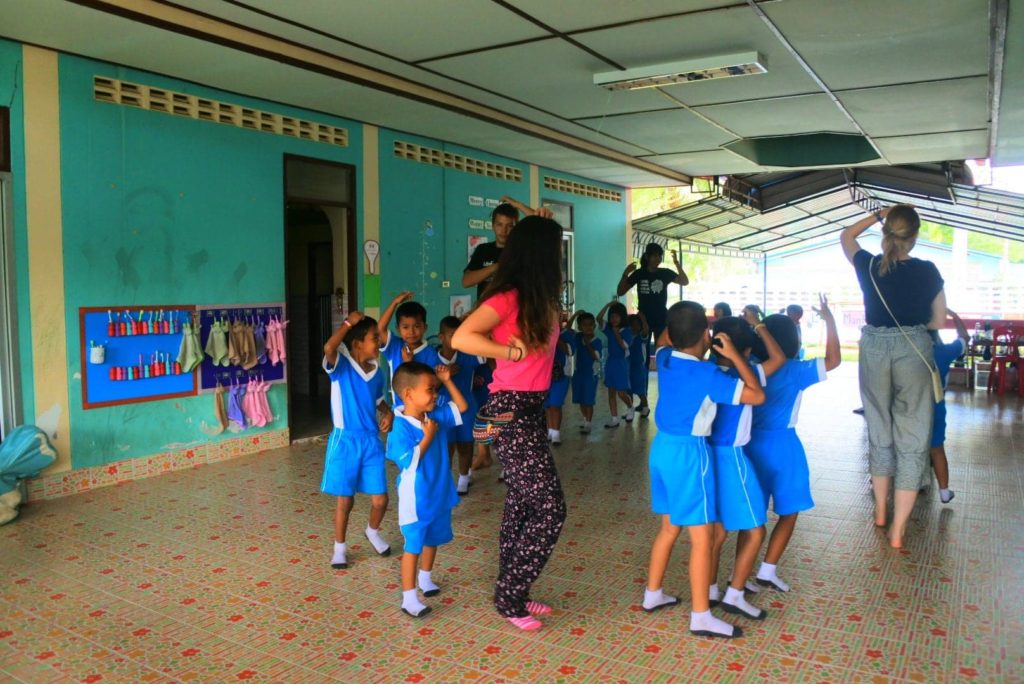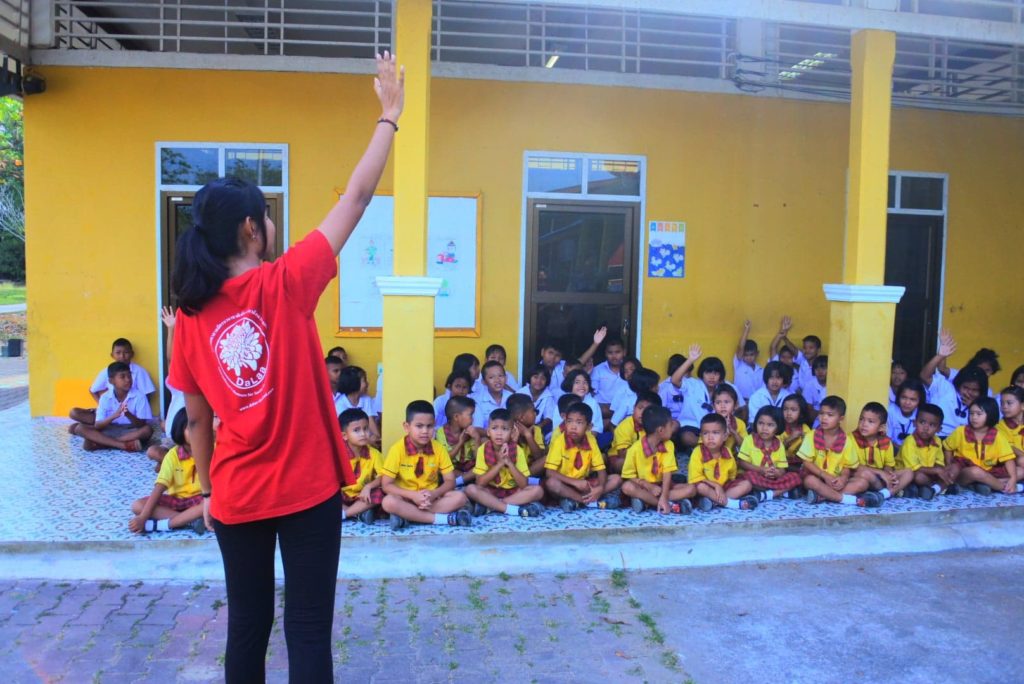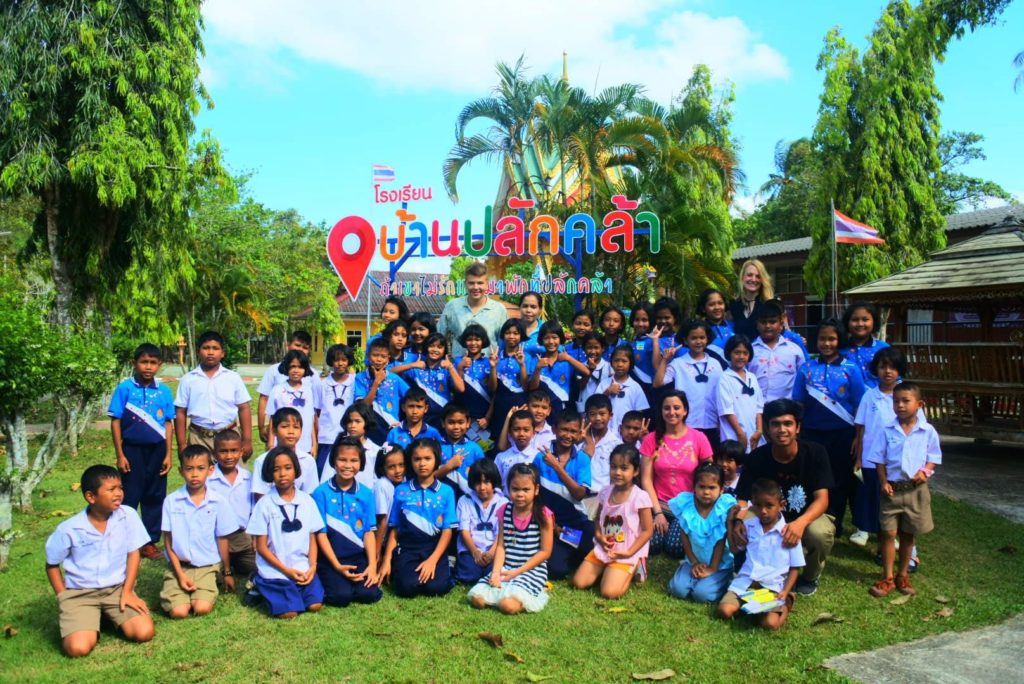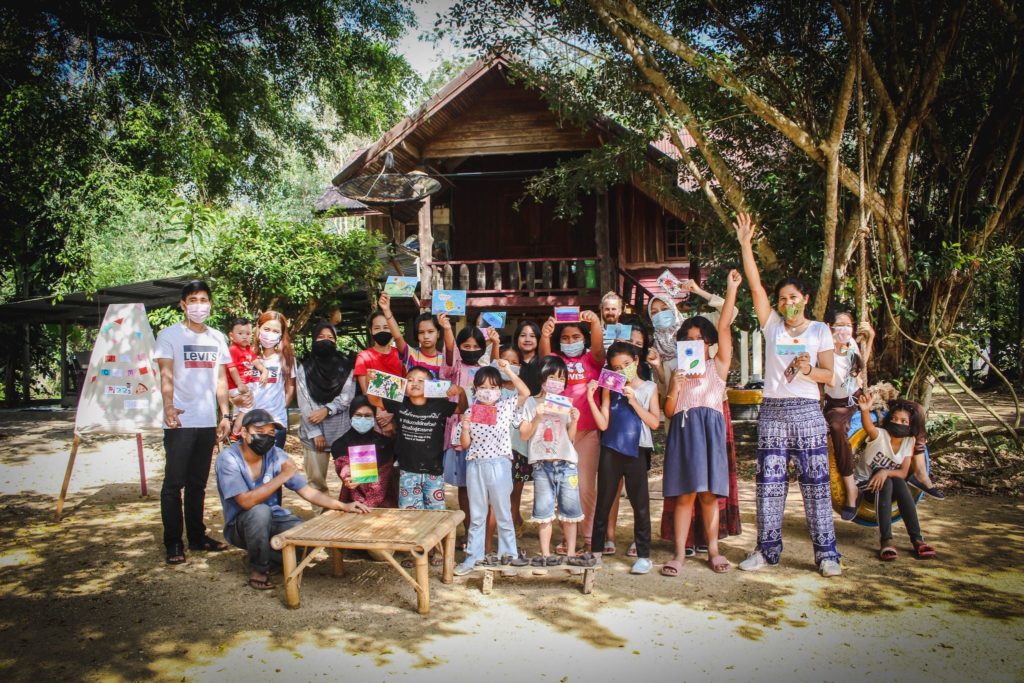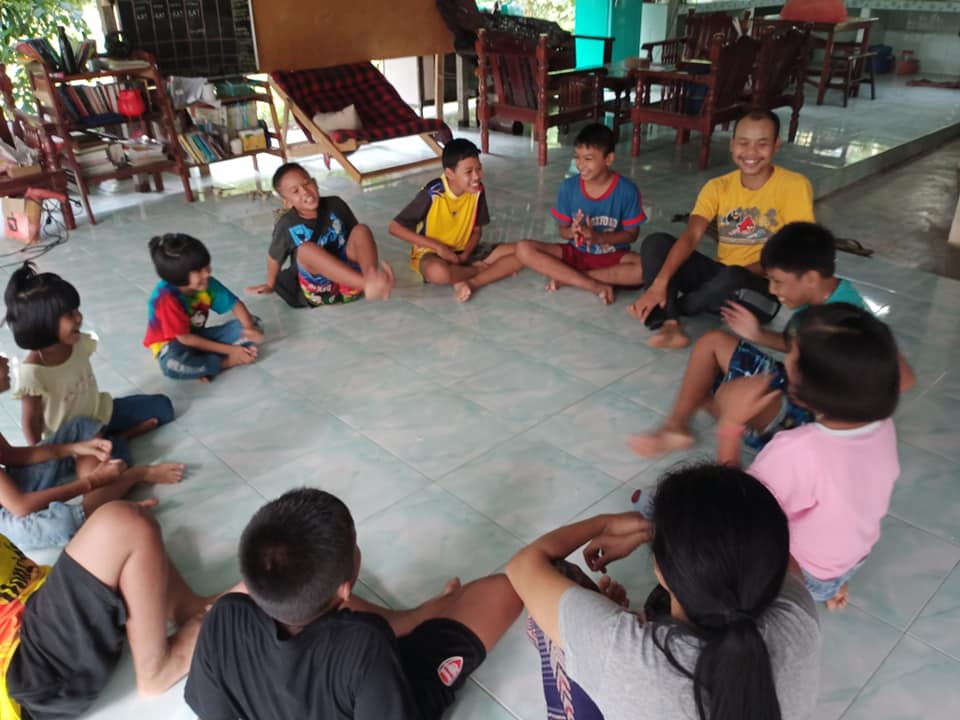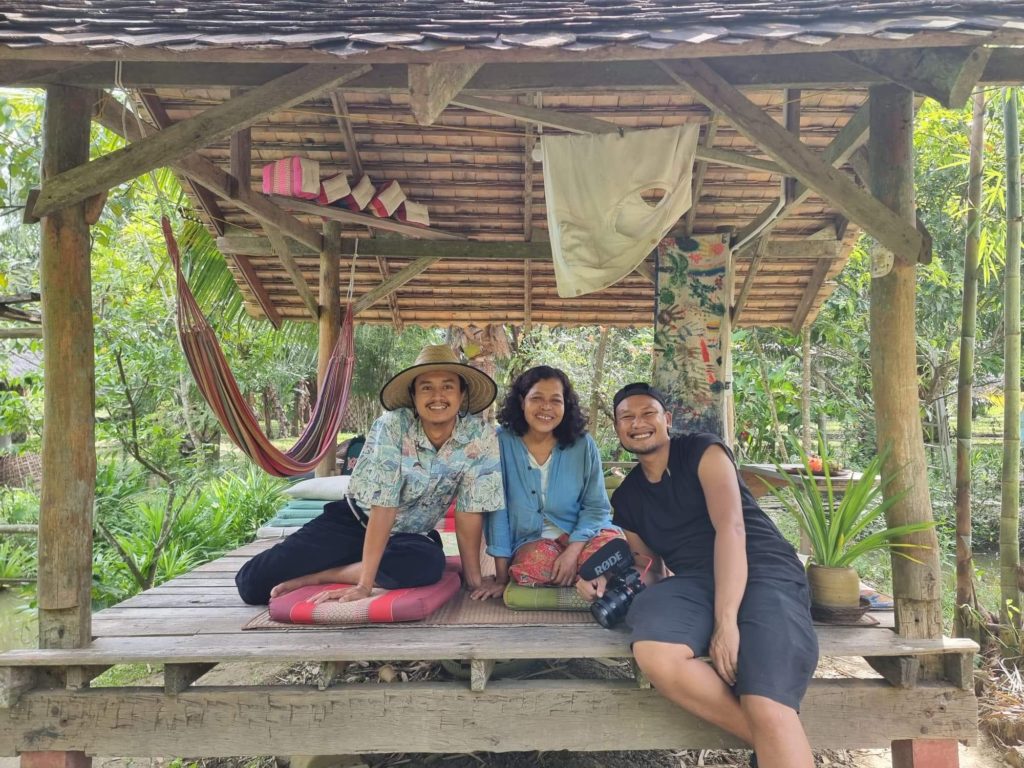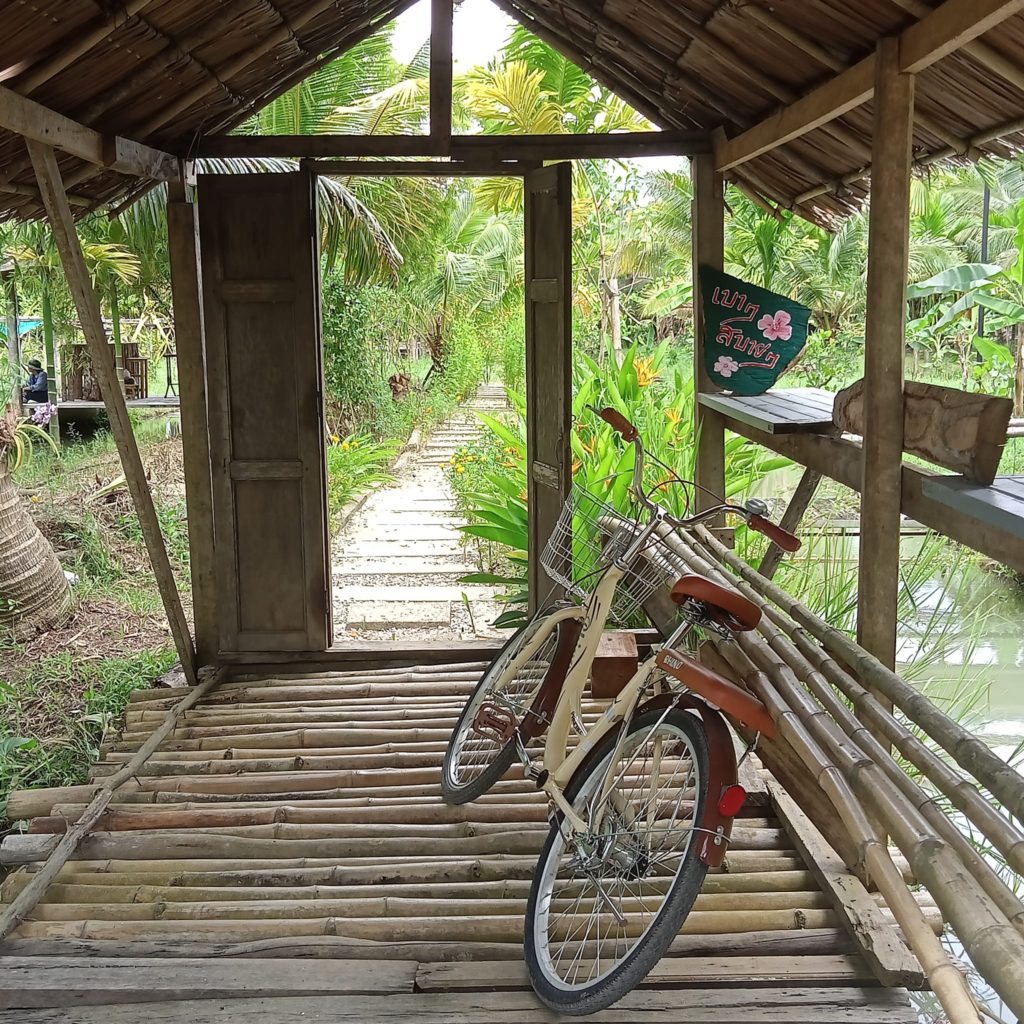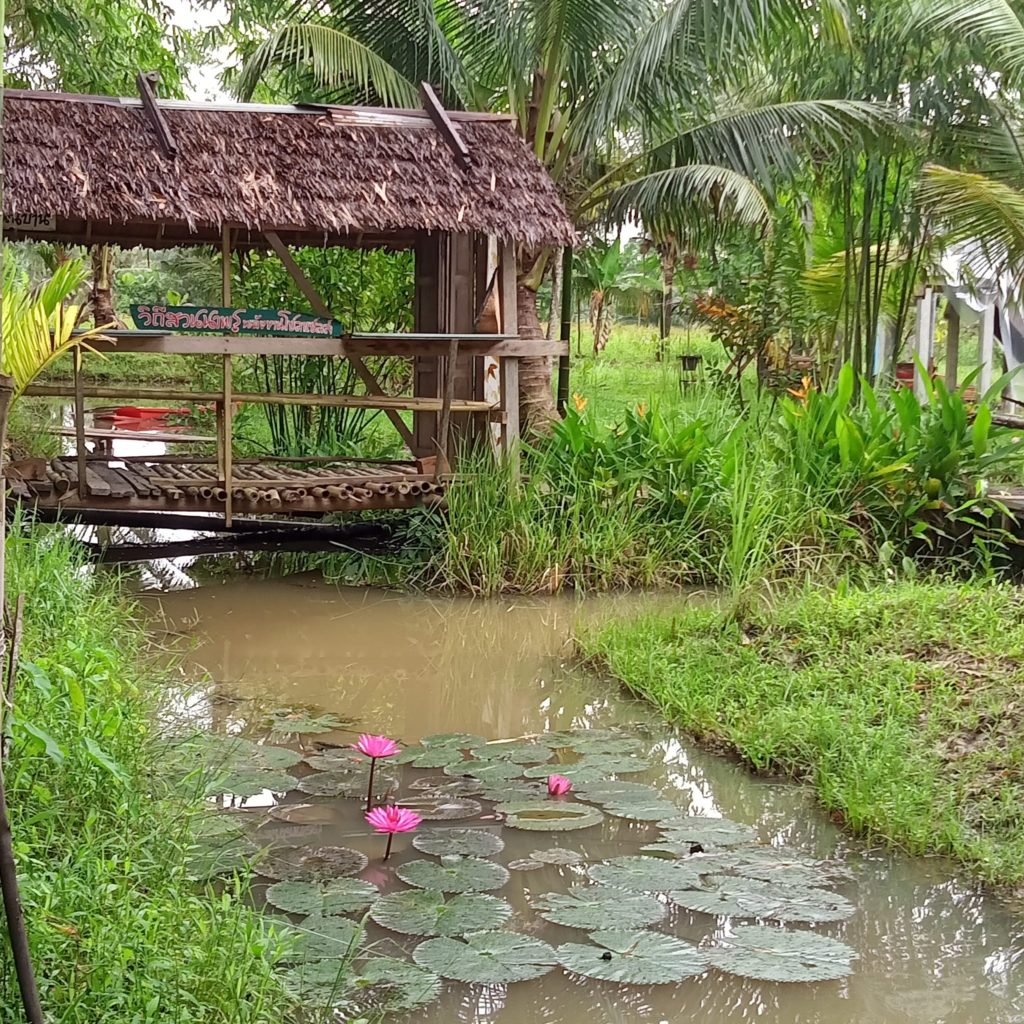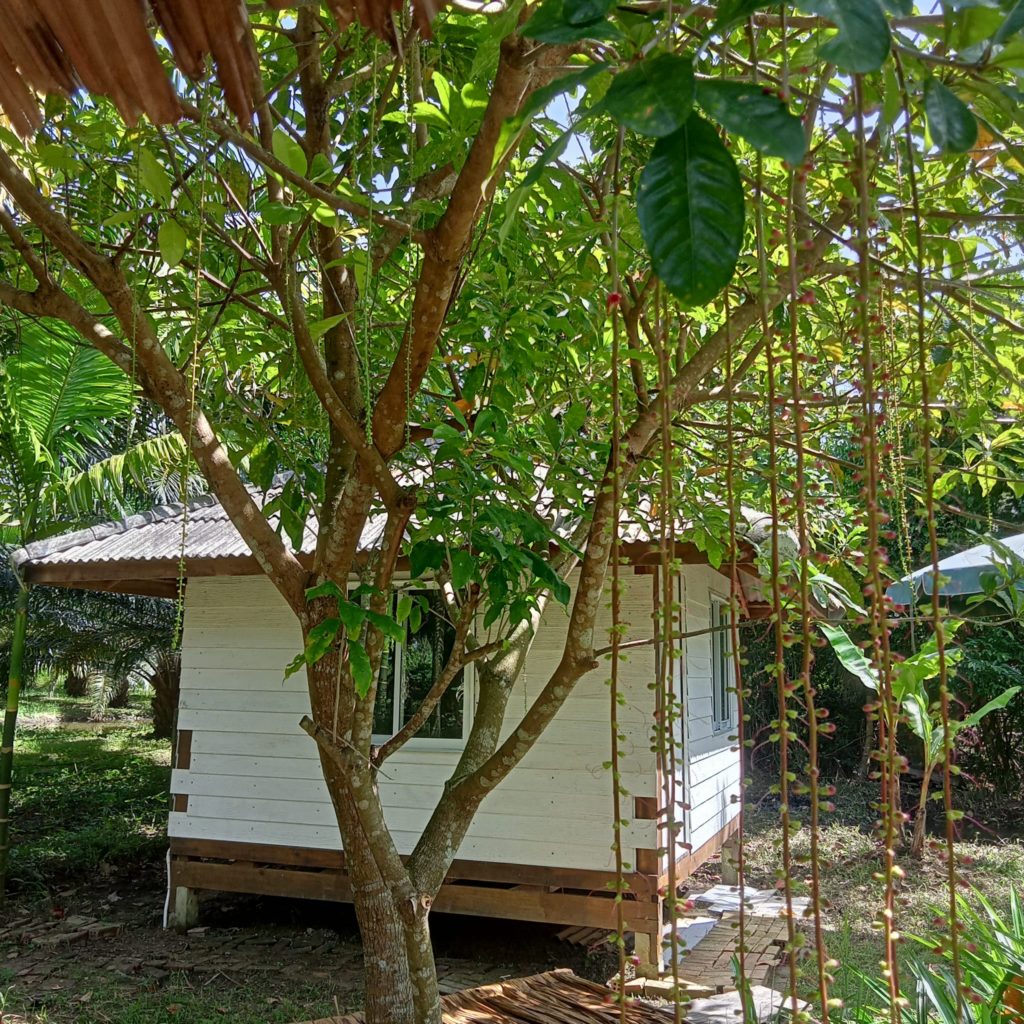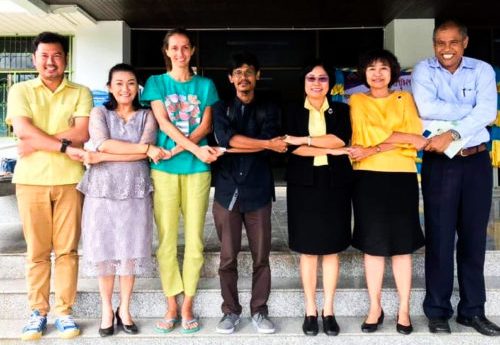Khoksalung Village
(Crafts- agricultural and sufficiency lifestyle)
(Thai Bueng Community, Lopburi province)
DaLaa MLTV project – code: 2302
All year round
Maximum 4-5 volunteers
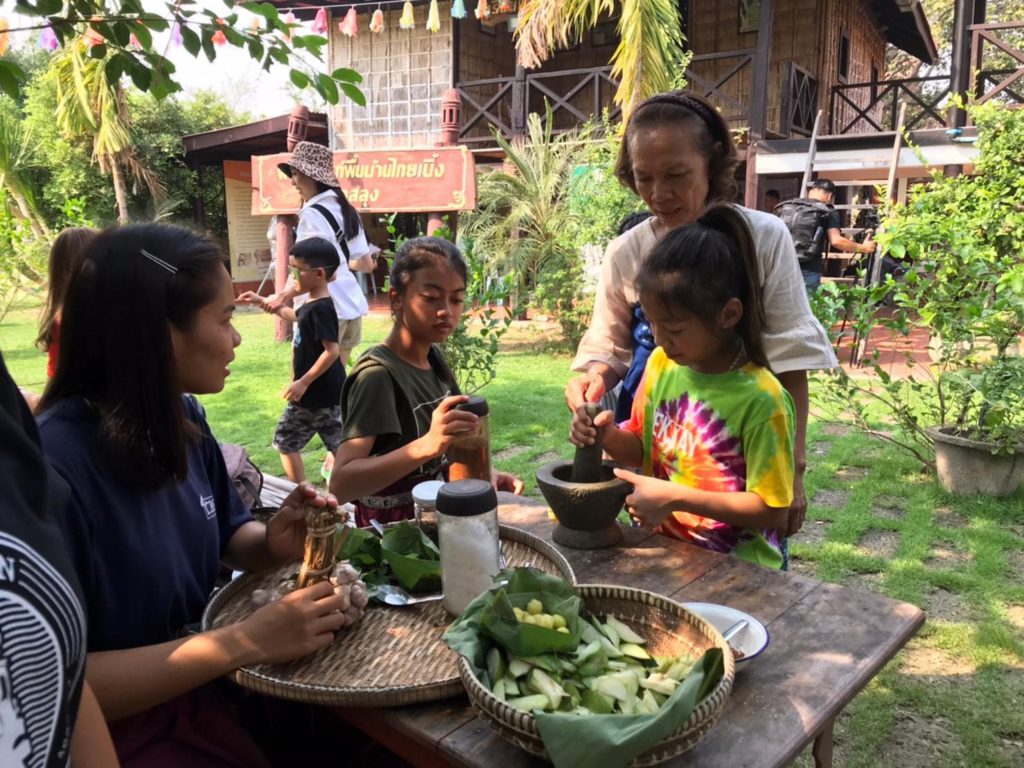
SHORT DESCRIPTION
Would you join the local Craft Products and agro- tourism lifestyle of Thai Bueng community? We have 25 years of experience and dedication of activities for kids and newcomers. You will participate in the community-based tourism and join local crafts production like weaving and organic agriculture in the very safe, warm and beautiful environment of the village. You would be welcome to support English teaching as a communication tool for locals.
HISTORY and REASONS OF THE PLACEMENT
Thai Bueng community, Khoksalung village (sub-district), Pathana Mikhom district, Lopburi province is a a big Buddhist community, with more than 3,000 houses and about 10,000 people. Most of us have extended families and many relatives around us. There are 5 temples, 4 primary Schools and 1 high School. The village is surrounded by a big dam named Pasak Chonlasit Dam.
We still preserve and revive our traditional culture through a respectful community -based tourism welcoming outsiders. Our team has worked in the village for over 25 years on these issues. We emphasize local wisdom to develop new quality products. Our main skills and tools are weaving, nature color dying, agriculture and inland fishery. We use quality communication, the so-called “Dialogue” between all the actors, After Action Review (AAR) to constantly improve and other tools like System Thinking, Networking and Strategy within our team and with outside stakeholders. We organize regular meaningful activities together with locals including children and outsiders, both Thai and foreigners and would be pleased if the volunteers can teach English for communication both for children and adults interested.
We started to promote this volunteer placement through DaLaa association in 2023, after we met with Mint, a young social activist who joined our volunteers activity a month. She is the main host for the volunteers who will sleep in her home. After she graduates a few years ago, she decided to go back to her village to support the local initiatives mentioned above. She is herself joining the activities of the community since she was a kid and her determination to go on with this project is very communicative. She is surrounded by her close family (4 people), her extended family and community and an active team of 6 people with who you will join daily life.
AIMS of the Placement
– Enhance culture exchange between volunteers and Thai Bueng community.
– Support the Community-based tourism to preserve the local way of life and economic stability.
– Support organic self sufficient agriculture through active participation of the volunteers
– Manage our team daily life in a meaningful and respectful way.
(Thriving through Authenticity, Responsibility and Inclusion as the image of an harmonious global community we wish for)
WORK AND ACTIVITIES
- Prepare work shops to welcome the tourists.
- Agriculture in the communities garden
- Teaching English for children and local people.
- Activities with kids such as games , art , sport
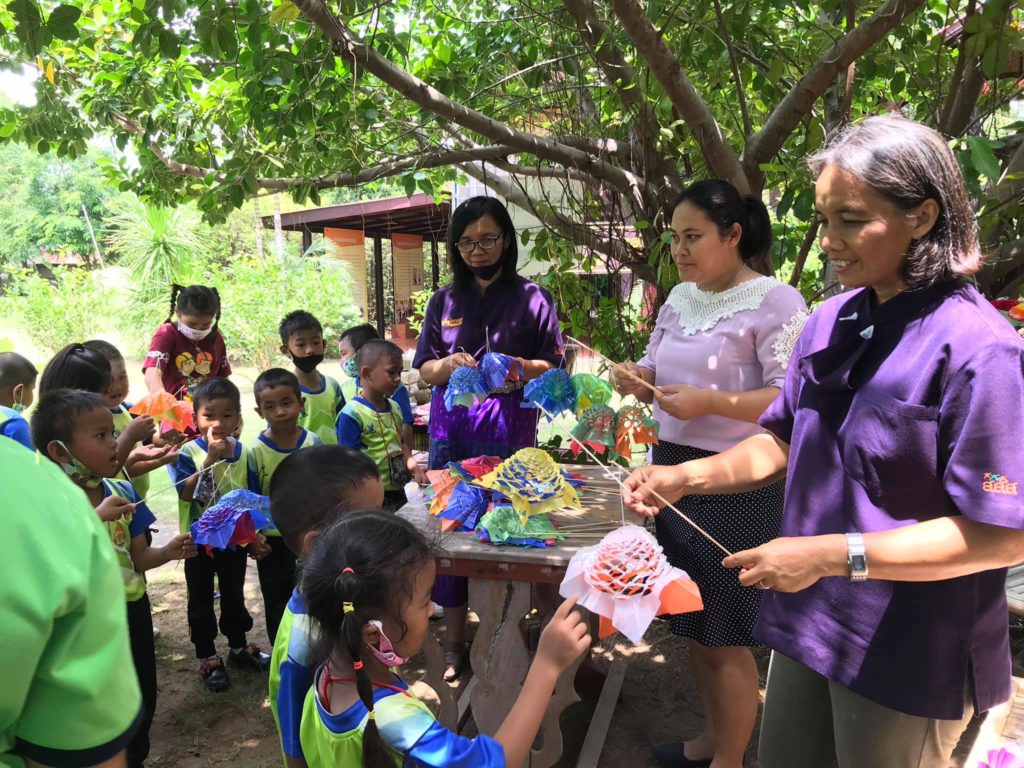
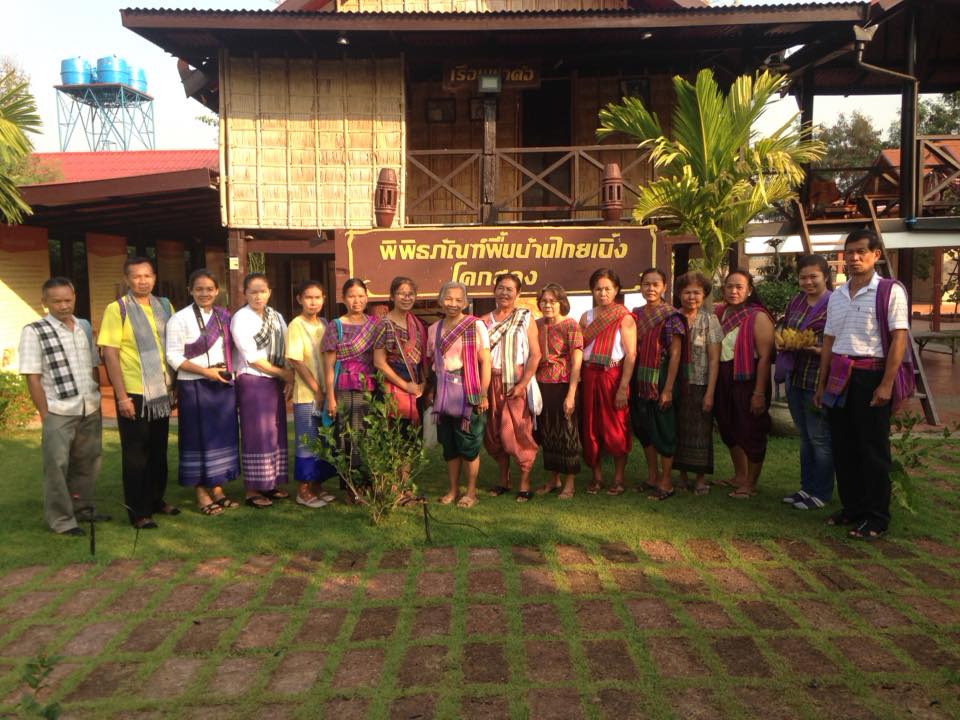
Other practical information
- The volunteers will cook and live together with the host family. (Mint)
- Simple sleeping material is provided : a small mattress, pillows and a mosquito net
- There are events and activities in the village almost every day and in other provinces occasionally. Most locals cannot speak English but Mint can translate for international volunteers.
- Khoksalung is situated in Lopburi province, about 200 km North of Bangkok”. From Bangkok , there is only one train a day that stopped in Kok Salung village (Nong Kai destination). There are regular mini-vans from Mor Chit 2 (Northern Bangkok bus station) with destination of Khoksalung – Lopburi”province which takes about 2-3 hours.
- There is an internet Wi-Fi in the host’s house and the activity area.
- There is an ATM in the village and the banks are about 20 km away in the district Pathana Nikhom
- There is a health center in the village and a hospital in Pathana Nikhom town.
- There is Police station in the village
- There is Local market every day, groceries around and Super Market in Pathana Nikhom.
- We have a washing machine.
- If you have special need, please inform us in advance.
